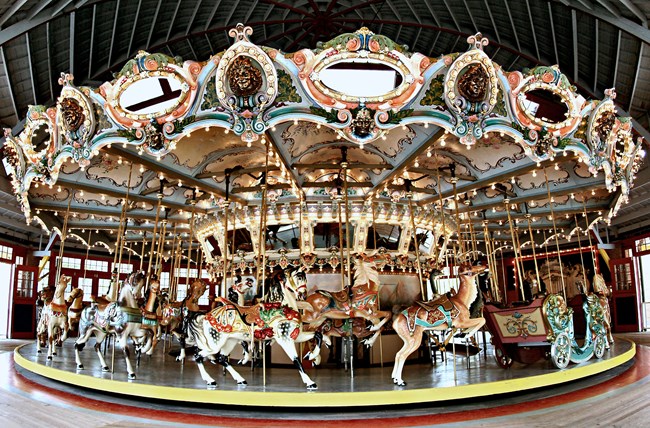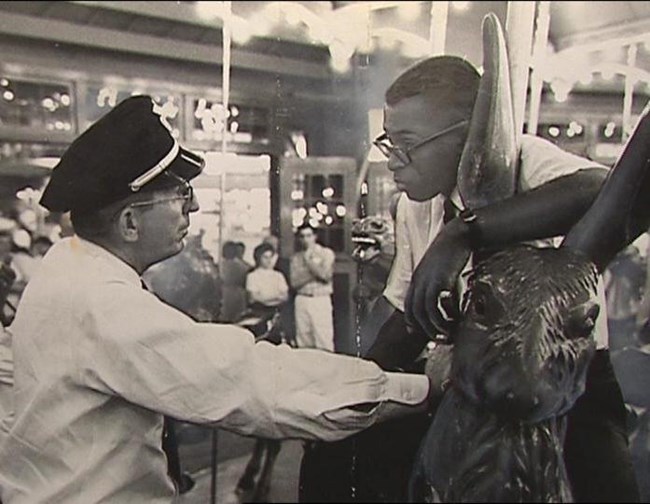
NPS Ride the carouselGet tickets and take a ride on the historic Dentzel Carousel! Tickets are $5 per person for all day on weekdays and $5 per person for a 4-hour time slot on weekends and holidays. Check the carousel schedule.
OriginDuring Glen Echo Amusement Park's glory days as an amusement park, the Dentzel Carousel was the jewel of the park. The carousel remains the park's treasured centerpiece. The Dentzel Carousel Company built the carousel, which the amusement park installed in a 12-sided canopy building in 1921. Dentzel Carousels are known for their realistic, graceful animals and elaborate carvings. The Glen Echo carousel is called a "menagerie carousel" because of it is made up of many different animals. The 40 horses, 4 rabbits, 4 ostriches, giraffe, deer, lion, and tiger stand in three concentric rings. The carousel moves to the music of a Wurlitzer band organ, which pipes out music using a system similar to a player piano. Only 12 Wurlitzer organs of this style are known to exist. 
NPS Civil rights protests at the Dentzel CarouselThe carousel was also the location of the initial civil rights protest at Glen Echo Park in 1960. At that time, the amusement park was segregated: only people with white skin were permitted to use the park and ride the rides. While whites whirled around on the park's attractions, black children who wanted to participate were excluded, left outside the gate only to hear what fun others were having inside. Saving the carouselWhen the amusement park closed in 1968, the carousel was sold off along with other ride equipment. If not for the dedicated work of local citizens, this incredible piece of history and art might have been lost forever. The carousel and organ were donated to the National Park Service with the understanding that they would remain at Glen Echo Park and be operated for public enjoyment. Carousel RehabilitationIn 2019-2020, the carousel underwent major restoration to repair the roof, touch up murals, rehab the organ, and keep the carousel looking its best and running smoothly. Learn more about the restoration. |
Last updated: June 26, 2023
